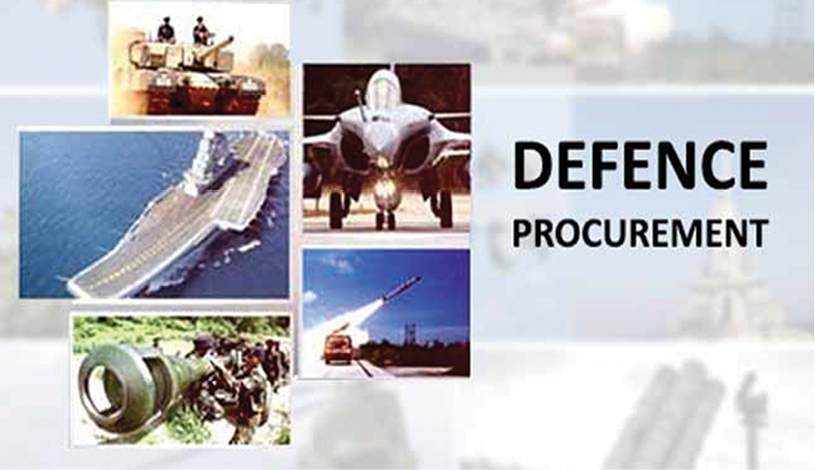
Articles
Smarter Procurement Process to Keep our Forces Battle-Ready
Sub Title : With military technology evolving so rapidly, the acquisition process must be adaptive and dynamic
Issues Details : Vol 19 Issue 2 May – Jun 2025
Author : Defstrat editorial team
Page No. : 58
Category : Military Affairs
: June 3, 2025

Even in the middle of a tense situation at the borders, Prime Minister Narendra Modi found time to meet with a large cross section officials and think tanks spanning a number of ministries including some of India’s most experienced military veterans. In his usual hands-on style, he held a closed door conversations with these highly decorated and experienced officials and intellectuals, listening carefully to their insights and advice, some of them being battle-hardened seniors who understand what it takes to keep the defence forces ready for any challenge.
Reportedly one suggestion which came up during one such meeting was that India needs to fix its defence procurement system on priority. An effective and adaptive system is critical for maintaining a state of readiness at all times, especially in the face of unpredictable and rapidly evolving security challenges.
Defence procurement process is known for being slow and complicated. This is not just an Indian problem, but in democracies across the world, such systems are usually full of paperwork, approvals, and checks. In contrast, countries with authoritarian rule can make quick decisions because there is little questioning of authority. While that kind of system has its own issues, when it comes to military readiness, it often gives them an advantage. While this ensures accountability, it also slows down the pace at which defence needs are met. This contrast often gives autocratic nations an edge in military preparedness, as they can act swiftly and decisively without the encumbrances of parliamentary scrutiny or public debate.
For a country like India, with its long borders and complex security challenges, being ready for conflict is non-negotiable. We cannot afford to be caught off guard. Whether it’s a border skirmish, a standoff, or a larger war, every conflict comes as a reminder to us that our military must always be prepared. The think tanks and intellectuals, thus, were clear in their view – we must speed up and simplify how we buy and deliver defence equipment.
One weak link in this system is the role of acquisition managers, the officials who handle the acquisition process. Many of them come from civilian backgrounds and don’t fully understand the needs of the armed forces. They may not realise how urgently a certain weapon system or vehicle is required, or how it will be used in battle. The gap in understanding operational requirements leads to files getting stuck and projects being delayed, at times leading to obsolescence by the time the hardware is procured!
A smart suggestion to improve upon the process is, therefore, to send these acquisition managers and financial officers to operational areas during the times of conflict. Let them visit forward bases, interact with soldiers, and see for themselves how the equipment is used. When they experience the reality on the ground, whether it’s harsh weather, difficult terrain, or the pressure of a combat zone, they will better understand why speed and accuracy in procurement is so important. Such exposure will also make them more responsible. When they see the results of their decisions, whether it’s the smooth delivery of much needed gear or the cost of a delay, they will start treating each file on their desk with the urgency it deserves.
Conflict, as painful as it is, also opens our eyes to what needs to be improved. For those in charge of procurement, it is a chance to reflect on their role and understand that they are not just processing papers, they are part of India’s National Defence Chain’.
Meeting with intellectuals, professionals and veterans during a time of conflict reflects a commendable willingness to listen to those with ground level insights. The system must now act on their advice. Procurement reforms should not mean cutting corners, but making sure that efficiency and speed are built into the process.
As our soldiers put their lives on the line for the country, the least we can do is ensure that they get what they need, when they need it without unnecessary delays. A strong and ready military is the backbone of a strong and secure India. Military preparedness is not optional or negotiable The sooner systems evolve to reflect this, the safer and stronger the nation will be.


